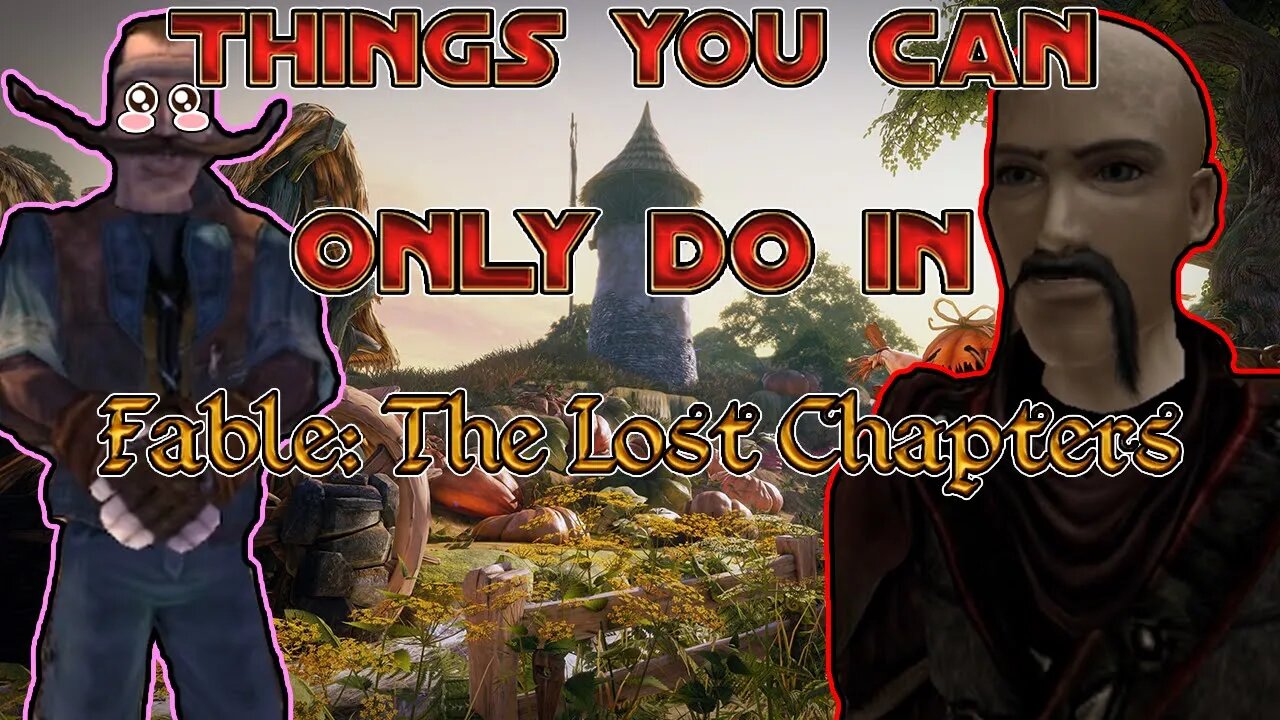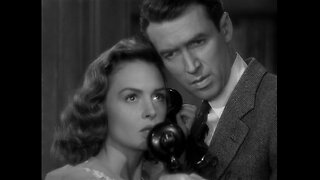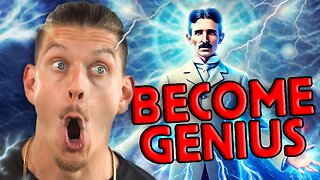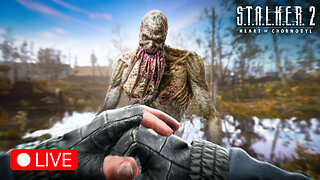Premium Only Content

Things You Can Only Do In Fable: The Lost Chapters
Does anyone remember Fable: The Lost Chapters? Seems like everyone forgot about this game as soon as Fable: Anniversary came out, but I didn't forget! I'll never forget! I have many hours in the fable franchise, especially the first game, both the OG and TLC. Jon, however, has never played the game before, so I set out as his avatar with him as my moral compass and sense of fashion and, well, it has to be seen to be believed! Here are just some of the things you can only do in Fable: The Lost Chapters! So come and join Brufus the Brash and he makes history!
TWITCH: https://www.twitch.tv/wearestagezero
TWITTER: https://twitter.com/WeAreStageZero
Fable is an action role-playing video game, the first in the Fable series. It was developed for the Xbox, Microsoft Windows, and Mac OS X platforms by Big Blue Box Studios, a satellite developer of Lionhead Studios, and was published by Microsoft Studios. The game shipped for the Xbox in September 2004. An extended version of the game, Fable: The Lost Chapters, was released for the Xbox and Windows in September 2005. A port of the game for Mac OS X, created by Robosoft Technologies and published by Feral Interactive, was released in March 2008 after a delay of more than two years due to licensing issues.
Originally developed under the name Project Ego, Fable's development involved more than 150 people. The game's music was composed by Russell Shaw, with the opening title theme written by Danny Elfman. The game's release was widely anticipated, due in part to Lionhead co-founder Peter Molyneux's enthusiastic hype of the game. The game was originally in development for the Dreamcast, but shifted to the Xbox after the Dreamcast was discontinued.
Fable received generally positive reviews from critics for the quality of its gameplay and execution, though the failure to include many promised features was noted. Fable was the top-selling game of September 2004 and sold more than two million units by 2006. The game was followed by two sequels, Fable II in 2008, Fable III in 2010 and a reboot in development by Playground Games. Fable Anniversary, a high-definition remake of the game that includes The Lost Chapters, was released for the Xbox 360 and Microsoft Windows in February 2014.
Fable is a role-playing video game where players control their character from a third-person perspective. The main character, known as The Hero of Oakvale, can interact with people and objects as well as battle foes. The goal of Fable is to complete missions called quests that advance the game's plot, but Fable also features optional quests and allows players to pursue actions not directly tied to story completion.
Most quests are acquired at a central location, known as the Heroes' Guild; required quests are marked with a gold symbol and advance the game's story, while optional quests are coloured silver and can be completed in any order. Some quests allow players to pick sides and aid either evil characters, such as bandits, or good characters, such as traders and guardsmen. Players can also boast after accepting a quest, wagering some of the quest's reward gold in exchange for a larger return if the player accomplishes their bet, such as sustaining no damage or undertaking the quest naked. Gold, which can be used to buy weapons and items, and renown, which affects the way townspeople react to the Hero. Heroes also earn trophies of their victories, which can be displayed to large groups of townspeople to earn more renown.
In addition to fighting with melee weapons (such as swords and maces) and ranged weapons (longbows and crossbows), Heroes can learn and use spells to empower their abilities, ward off damage, or harm foes. As players complete quests or defeat enemies, they gain general experience as well as experience based on whether they used melee attacks, ranged weapons, or magic; these bestow Strength, Skill, and Will experience, respectively. Experience can be spent at a platform in the Heroes' Guild to level up attributes.[4] General experience can be used to modify all groups of attributes. Strength experience can only be used to modify three attributes: Physique, Health, and Toughness. The same applies to Skill which can only modify Speed, Accuracy, and Guile. Will can be used to upgrade player's total magic power or to learn and upgrade spells which are broken into three groups, Attack Spells, Surround Spells, and Physical Spells. The experience the main character gains can be multiplied during combat through the combat multiplier. As the character successfully hits an enemy, his combat multiplier increases. If the character is hit by the enemy, the combat multiplier drops down to the next multiple of five, or zero if below five.
-
 8:50:58
8:50:58
Right Side Broadcasting Network
21 hours ago🎅 LIVE: Tracking Santa on Christmas Eve 2024 NORAD Santa Tracker 🎅
280K37 -
 2:48
2:48
Steven Crowder
1 day agoCROWDER CLASSICS: What’s This? | Nightmare Before Kwanzaa (Nightmare Before Christmas Parody)
267K12 -
 33:49
33:49
Quite Frankly
20 hours agoThe Christmas Eve Midnight Telethon
71.4K9 -
 2:12:46
2:12:46
Price of Reason
20 hours agoAmber Heard BACKS Blake Lively Lawsuit Against Justin Baldoni! Is Disney CEO Bob Iger in TROUBLE?
35.7K13 -
 1:01:17
1:01:17
The StoneZONE with Roger Stone
14 hours agoChristmas Edition: Why the Panama Canal is Part of the America First Agenda | The StoneZONE
110K42 -
 18:12:15
18:12:15
LFA TV
1 day agoLFA TV CHRISTMAS EVE REPLAY
128K14 -
 13:32
13:32
Scammer Payback
16 hours agoChanging the Scammer's Desktop Background to his Location
2.87K3 -
 4:21
4:21
BIG NEM
18 hours agoNikola Tesla's Secret to Cultivating Creativity & Genius
1.49K1 -
 15:03
15:03
The Anthony Rogers Show
1 day agoAnthony Rogers - Live at Cusumano's Pizza (Upstairs)
1.2K1 -
 4:33:48
4:33:48
tacetmort3m
1 day ago🔴 LIVE - THE ZONE KEEPS PULLING ME BACK - STALKER 2 - PART 15
68K12